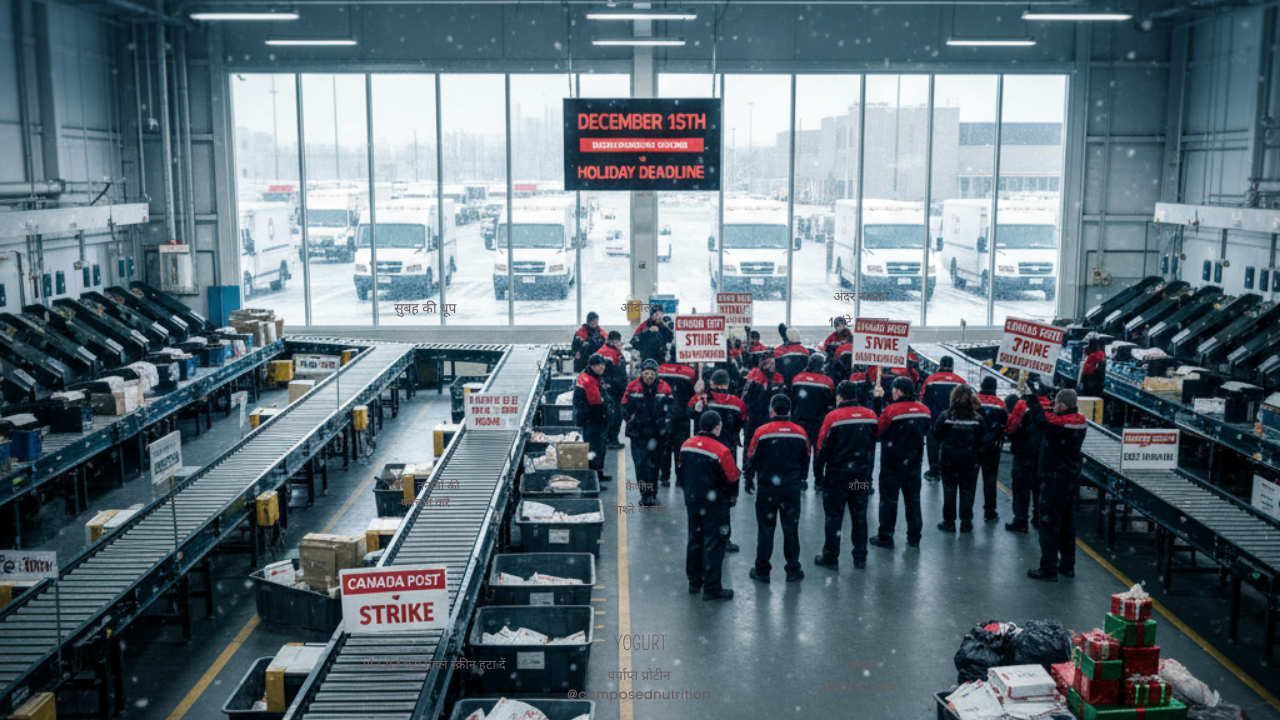Ottawa, October 31, 2025 – As the holiday shopping frenzy ramps up, Canada Post's ongoing labour dispute with the Canadian Union of Postal Workers (CUPW) has entered a precarious phase. What began as a nationwide strike on September 25 has evolved into rotating strikes across regions, causing widespread delays in mail and parcel deliveries. With over 55,000 workers involved and negotiations stalled, businesses and consumers alike are bracing for a disrupted festive season.
The shift to rotating strikes on October 11 allowed limited resumption of services, but as of October 30, disruptions persist in key areas like Quebec (excluding Metro-Montreal) and other provinces. Labour experts warn that the action could intensify as Christmas approaches, potentially "cancelling Christmas" for many, echoing public sentiment from last year's 32-day walkout.
A Timeline of Turmoil: From 2024 Walkout to 2025 Escalation
The roots of this dispute trace back to November 2024, when CUPW members first struck over wages and working conditions, lasting 32 days until the government imposed back-to-work legislation.Contracts were extended to May 2025, but tensions simmered with actions like overtime bans and refusals to handle unaddressed flyers.
The catalyst for the current action was Procurement Minister Joël Lightbound's September 25 announcement of sweeping reforms, including ending door-to-door delivery for 4 million homes, closing rural post offices, and installing community mailboxes. CUPW decried it as an "attack on our postal service," prompting the immediate walkout. Prime Minister Mark Carney emphasized the need for restructuring, citing Canada Post's precarious finances: $5 billion in cumulative losses since 2018 and a projected $1.5 billion deficit for 2025 alone.
— Jan Simpson, CUPW National President
Core Demands: Wages, Benefits, and Job Security at Odds
CUPW, representing urban operations and rural/suburban carriers, seeks substantial gains in a new collective agreement:
- Wage Increases: 24% over four years to match inflation; Canada Post offers 13.59%
- Benefits Enhancements: Coverage for fertility treatments, gender-affirming care, and better retiree plans.
- Job Protections: Safeguards against technological changes, dynamic routing, and part-time hiring for weekend parcels.
- Reform Reversal: Opposition to ending door-to-door service and office closures, fearing thousands of job losses.
Canada Post counters that mail volumes have plummeted from 5.5 billion pieces in 2006 to 2 billion in 2025, while parcels rise amid e-commerce competition from UPS and FedEx. The October 3 offer removed a signing bonus, citing unaffordability, and proposed job cuts for sustainability. CUPW rejected it as a "rollback," escalating to the current impasse.
Rotating Strikes: A Strategic Pivot with Lingering Chaos
After two weeks of full shutdown, CUPW suspended the national strike on October 10, opting for rotating actions to "keep mail moving while maintaining pressure." Starting October 11, strikes targeted specific facilities by time zone, allowing partial processing but suspending all service guarantees.
Current Strike Locations (as of Oct 30)
| Region | Action | Impact |
|---|---|---|
| Quebec (excl. Metro-Montreal) | No flyer processing/delivery | Delays in ad mail, parcels |
| Ontario (select facilities) | Rotating walkouts | Toronto, Ottawa backlogs |
| British Columbia | Partial halts | Coastal deliveries slowed |
| Atlantic Canada | Intermittent strikes | Rural mail disrupted |
| Prairies | Overtime bans | Volume processing delays |
Canada Post warns of "uncertainty and instability," with daily losses now at $10 million. Labour Minister Steven MacKinnon declared an impasse on October 11, directing the Canada Industrial Relations Board (CIRB) for potential intervention. A meeting with Minister Lightbound on October 8 yielded no breakthrough.
Economic Ripple Effects: Businesses and Holidays in Peril
Impact on E-Commerce and Small Businesses
The strike hits hardest during peak season. Parcel volumes dropped 23% in Q2 2025 due to uncertainty, costing $407 million in that quarter alone. Amazon and Shopify sellers report delays, with some shifting to private couriers at higher costs. Small businesses, reliant on affordable last-mile delivery, face a potential $1 billion hit in lost revenue.
- Holiday Shopping: 85% drop in U.S. spirits/wine exports to Canada; domestic gifts and cards delayed.
- SMEs: 50,000+ affected; e-billing surges as alternatives to physical mail.
Government and International Fallout
The Canada Revenue Agency (CRA) urges digital filings and drop boxes for tax payments. U.S. Postal Service suspended inbound mail on October 14. Welfare cheques and passports are bottlenecked, exacerbating public frustration.
— Jan Simpson, CUPW President
Public Sentiment: From Solidarity to "Cancelling Christmas"
An Angus Reid poll shows divided opinions: 34% side with Canada Post, 29% with workers, 37% neutral or opposed to both. Social media buzzes with complaints: "Fuck the Canada Post strike, they cancel Christmas every time." Rural carriers express internal dissent, calling 24% wage demands excessive.
On X, users lament delays in everything from voting cards to health cards. Leaked union texts reveal frustration, with calls for volunteers to deliver welfare at below-minimum pay.
Alternatives and Mitigation Strategies
Canada Post advises expecting delays but processing in non-strike areas. Alternatives include:
- Private Couriers: UPS, FedEx, Purolator (non-CUPW) for parcels.
- Digital Shifts: E-transfers, email billing via banks/PayPal.
- International: Hold shipments; use DHL for urgent exports.
- Government: CRA online portals; drop boxes for cheques.
Businesses are urged to diversify carriers, though costs rise 20-30%.
Political and Expert Perspectives
Minister Lightbound faces CUPW backlash for lacking public consultation. Carney defends reforms as "overdue" for viability. Analysts predict broader strikes if unresolved, potentially forcing legislation like 2024.
Calls to privatize grow, with $1.5B losses fueling debates on Crown corp sustainability.
Environmental and Long-Term Implications
Reforms aim for net-zero by 2030, but strikes accelerate shifts to private fleets, potentially hiking emissions short-term. Long-term, modernization could save $1B annually via efficiency, but at the cost of union jobs.
Track your mail: Visit Canada Post → | Alternatives: UPS/FedEx
Urgency for Resolution
This dispute underscores Canada Post's existential crisis: adapting to digital decline while honoring workers. As rotating strikes persist, the onus falls on negotiators to bridge divides before Black Friday chaos. Failure risks eroding public trust and accelerating privatization calls. For now, Canadians adapt—digitally, diversely, and with growing impatience.
Next mediation: November 5, 2025. CIRB vote on offers possible if impasse holds.
Frequently Asked Questions (FAQs)
1. Will holiday deliveries arrive on time?
No guarantees; expect 7-14 day delays in affected areas.
2. How to send urgent items?
Use private couriers like FedEx; avoid Canada Post for time-sensitive parcels.
3. Are international services affected?
Yes; USPS suspended inbound mail Oct 14.
4. Can the government force an end?
Possible via CIRB, as in 2024; under review.
5. What's the strike's endgame?
CUPW seeks "meaningful progress"; Canada Post affordability.




















